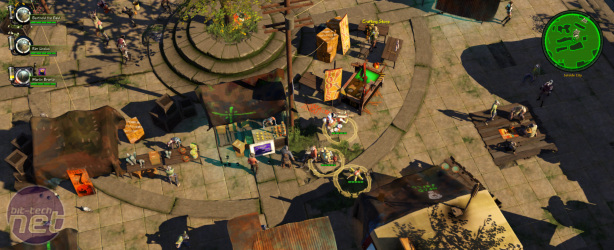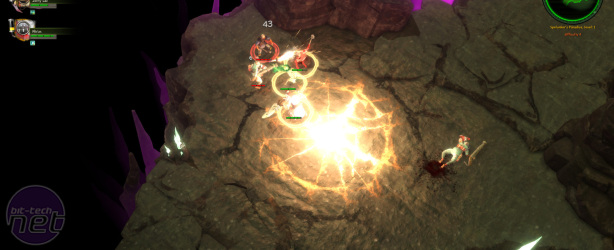
Krater Review
Publisher: Paradox InteractivePlatform: PC Exclusive
UK Price (as reviewed): £11.99 Incl. VAT
US Price (as reviewed): $14.99 Excl. Tax
There's a quick and dirty way to describe Krater, which is to sum it up as a cross between Diablo and Borderlands. It's an admittedly lazy description, both flippant and dismissive, but it's also accurate. Krater borrows heavily from Gearbox's cartoon-punk style, with an occasionally self-aware world where everyone wears a gasmask, but presents it from a more traditional action-RPG stance. With Krater following so closely on Diablo 3's heels you can't help but see the heritage in the constant crafting, collecting and clicking.
That Krater wears its influences so openly is not a bad thing; if anything it's a canny move to fill a half-gap in the market.
While Krater decently emulates the broader strokes from both games though, the finer details haven't been adapted so adeptly. That the very first thing you see when starting the game is a changelog rather than a main menu speaks volumes, as is the fact that the game originally launched with whole features missing and a slew of bugs.
Fatshark and Paradox have pledged to correct these issues - and the changelog indicates good progress so far - but it's still a far cry from the razor-honed mathematics of the competition.
On the other hand though, the fact that Krater has an offline mode and a plea for sympathy where others would have put DRM will be more than enough compensation for some.
The same halfway-there feel holds true on the aesthetic side too. Fatshark makes good re-use of Borderlands' character designs and overall aesthetic, for example, but struggles with the furious wit of Gearbox's world. Krater simply tries too hard, offering up constant semi-funny one liners where really just a handful of well-edited gags would suffice.
Editing is something more than just the jokes could do with too, as parts of Krater's otherwise interesting world are spoiled through poor explanation. The tutorial, for example, is set the morning after a huge party and focuses on introducing the mercenary trio you play as, one by one. There are no long backstories rolled out or strong personalities introduced, but the post-party setting bizarrely gets more attention than the wider fiction.
As it is, the pitch for the story is that after a huge nuclear war most of Sweden exists in a deep, forested crater, at the center of which is an impossibly huge chasm. The unlikely geography becomes a shelter for the surviving populace, and the central chasm becomes an infinite dungeon full of pre-war relics into which adventurers will delve for treasure.
It's here that your trio of mercenaries make their entrance, signing up for work with local guilds and eventually graduating from rat-slaying to more significant quests.

MSI MPG Velox 100R Chassis Review
October 14 2021 | 15:04











Want to comment? Please log in.